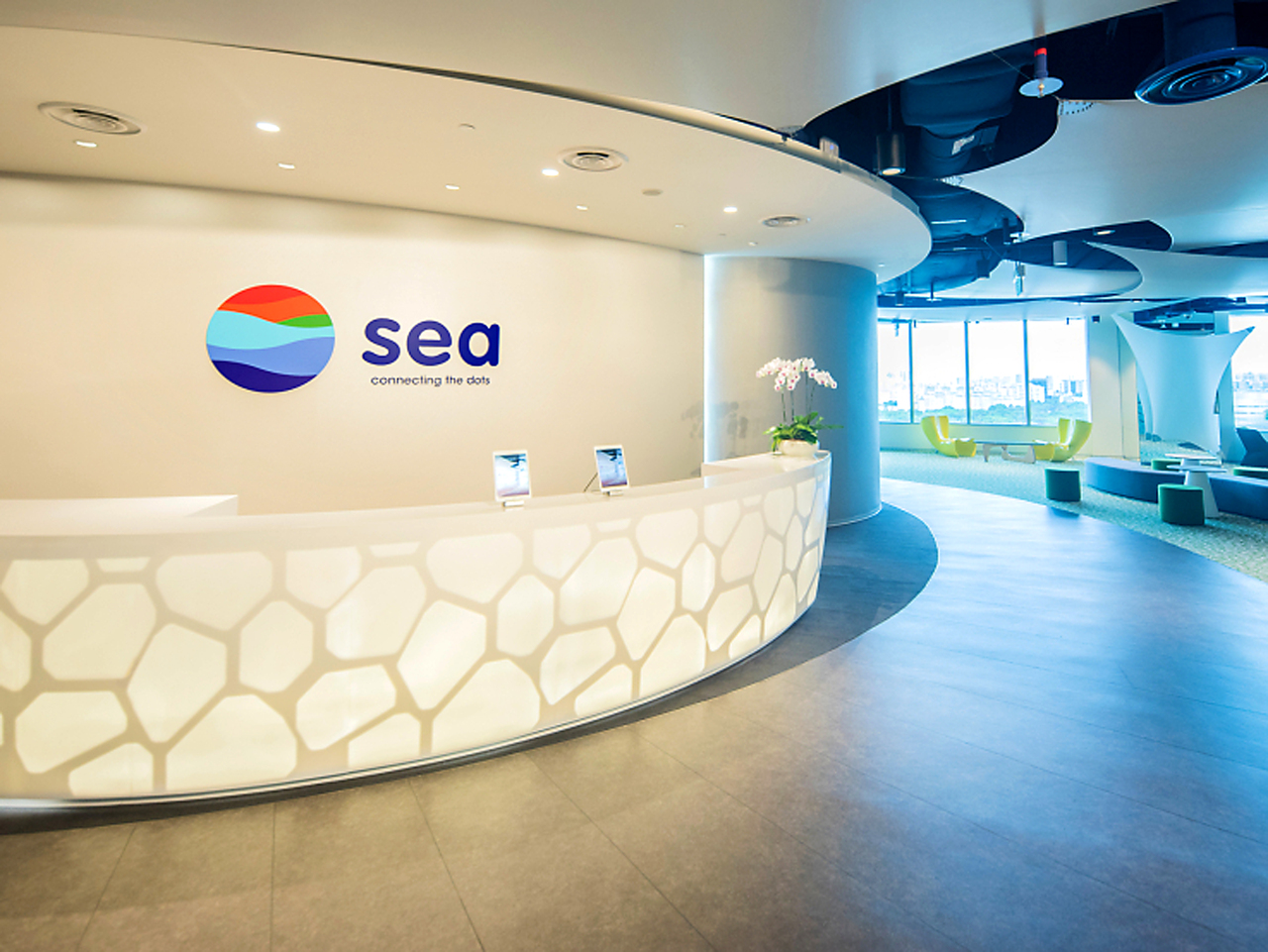Sea's shares fall after reported Free Fire ban by India, but analysts remain confident in its prospects
Sign up now: Get ST's newsletters delivered to your inbox

Sea saw its shares close about 18 per cent lower at US$129.17 (S$174) on Feb 14, 2022.
PHOTO: SEA LIMITED
Follow topic:
SINGAPORE - Online gaming and e-commerce company Sea's shares took a hit following reports on Monday (Feb 14) that its mobile game Garena Free Fire was among 54 apps that India banned, but some analysts said this could be a buying opportunity for investors.
These apps of "Chinese origin", which include those by Chinese tech heavyweights Tencent and Alibaba, were banned in India due to security concerns as tensions remain between India and China, according to Bloomberg.
Singapore-headquartered Sea, which is listed on the New York Stock Exchange, saw its shares close about 18 per cent lower at US$129.17 on Monday.
Responding to queries from The Straits Times, the company said: "Sea is a Singaporean company and we aim to partner in India's digital economy mission.
"We are committed to protecting the privacy and security of our users in India and globally, we comply with Indian laws and regulations, and we do not transfer to or store any data of our Indian users in China."
Analysts' confidence in Sea's prospects is demonstrated by 32 of 33 market watchers recommending a "buy" on the firm's shares and a 12-month consensus target price of about US$330, based on data compiled by Bloomberg.
CGS-CIMB analysts Ong Khang Chuen and Kenneth Tan said in a report that the Free Fire ban could present a "buying opportunity".
In the note, they said that the ban could cause a knee-jerk reaction in Sea's share price, as India makes up around 10 per cent of Garena's monthly active users.
Their target price for Sea, however, was lowered from US$425 to US$288 against the macro backdrop.
Free Fire, Sea's marquee game, was the most downloaded mobile game globally in 2021, with nearly 250 million downloads.
The impact from the reported ban on Free Fire in India may not be that significant, some watchers have said.
DBS Bank analyst Sachin Mittal said that while India comprises about 10 per cent to 15 per cent of the global Free Fire user base, it is estimated to contribute less than 5 per cent of Garena's global revenue.
Apart from the mobile gaming segment, Sea also operates in e-commerce and digital banking.
Its e-commerce arm Shopee, which is the largest online marketplace platform in South-east Asia, is currently its biggest revenue generator and expected to continue to see growth in sales.
Mr Mittal said it could be a blessing in disguise if Sea's Shopee stays away from the e-commerce business in India due to challenges arising from the reported ban on Garena, as Sea's group Ebitda (earnings before interest, taxes, depreciation and amortisation) would be better off in that scenario.
"India is a challenging market where incumbents Amazon and Flipkart are loss-making and it is highly unlikely that Shopee can achieve Ebitda breakeven in India even in five to six years," he added.
DBS Group Research has maintained its target price of US$278 for Sea.
The CGS-CIMB analysts noted that Chinese tech giant Tencent Holdings' reduced voting rights in Sea to less than 10 per cent could help minimise the association of Sea as a Chinese-linked entity and "should pave the way for lower risks for future geographical expansion of the company".
Earlier this year, Tencent announced that it was selling about US$3 billion of shares in Sea, which reduced its holding from 21.3 per cent to 18.7 per cent. Then, some industry observers said that the reduction of Tencent's stake could mean fewer regulatory risks for Sea in markets where hostility towards Chinese firms is growing.
Sea, founded in Singapore in 2009, listed in New York at US$15 a share in 2017. Its shares peaked at over US$370 last October but have since slid in part due to the tech sell-off and following Tencent's reduced shareholding.
Sea chief executive and founder Forrest Li, a Chinese-born Singapore citizen, is among the Republic's most affluent and on the board of the Singapore Economic Development Board.
The firm has yet to become profitable, reporting a net loss of US$450.1 million after excluding share-based compensation in the third quarter last year.
CGS-CIMB's Mr Ong and Mr Tan said that while they expect a slowdown in Sea's revenue growth, they believes that the recent sell-off has created attractive buying opportunities.
"We remain constructive on (Sea) given its strong e-commerce leadership in Southeast Asia, immense growth in its financial services segment, backed by a robust cash-generating gaming business," they wrote.

